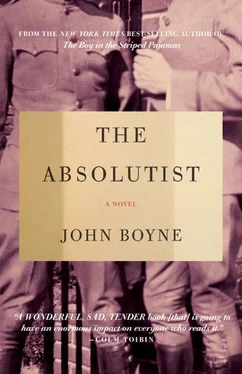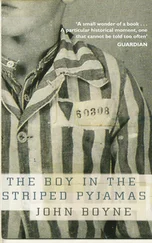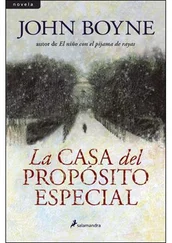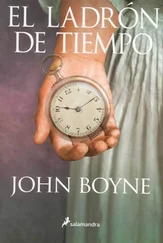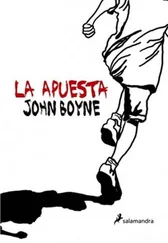I woke early the following morning after a surprisingly undisturbed sleep and was the first to use the bath that served the needs of the six rooms in Mrs. Cantwell’s establishment. The water was tepid at best, but it served its purpose and I scrubbed my body clean with the same bar of soap that had been left for me in my room. Afterwards, having shaved and combed my hair in the small mirror that hung over the washbasin, I felt a little more confident about what lay ahead, for the sleep and the bath had revived me and I did not feel as unhealthy as I had the night before. I held my right hand out flat before me and watched it, daring the spasmodic finger to tremble, but it held itself still now and I relaxed, trying not to think about how often it might betray me as the day developed.
Not wishing to engage in conversation, I decided against taking breakfast in the boarding house and instead crept downstairs and out of the front door shortly after nine o’clock without so much as a word to my host or hostess, who I could hear busying themselves in the dining room and bickering away like an old married couple. I had left the door of my room ajar with my holdall atop the bed covers.
The morning was brisk and bright; there were no clouds in the sky, no suggestion of rain later, and I was grateful for that. I had never been to Norwich before and purchased a small printed map from a street stall, thinking that I might spend an hour or two strolling around the city. My appointment was not until one o’clock, which left me ample time to see a few of the local sights and return to my lodgings to freshen up before making my way to our designated meeting place.
I crossed the bridge on Prince of Wales Road and stopped for a moment, staring down into the Yare as it flowed quickly along, and recalled for a moment a soldier I had trained with at Aldershot and fought alongside in France—Sparks was his name—who had told me the most extraordinary story one evening when the two of us were on top-duty together. It seemed that he had been crossing Tower Bridge in London one afternoon some four or five years earlier when, halfway across, he was stopped short by an overwhelming conviction that at that precise moment he was exactly halfway through his life.
“I looked left,” he told me. “I looked right. I looked into the faces of the people walking past me. And I just knew it, Sadler. That this was it. And right then, a date popped into my mind: 11 June 1932.”
“But that would make you, what, no more than forty?” I said.
“But that’s not all,” he told me. “When I got home again, I took a scrap of paper and worked out that if it really was the halfway point of my life on that very day, then what date should be my last. And you’ll never believe what it came to?”
“Never!” I said, astonished.
“No, it wasn’t the right date,” he replied, laughing. “But it was close. It would have been August 1932. Either way, it’s not much of an innings, is it?”
He made it to neither. He had both legs blown off just before Christmas 1917 and died of his injuries.
I put Sparks from my head and continued northwards, climbing the steep gradient of the street, and found myself walking along the stone walls of Norwich Castle. I considered climbing the hill towards it and examining the treasures that might be on display inside but decided against that, suddenly uninterested. Castles such as this, after all, were nothing more than the remains of military bases where soldiers might camp out and wait for the enemy to appear. I did not need to see any more of that. Instead I turned right, walking through a place that identified itself by the rather morbid name of Tombland, and in the direction of the great spire of Norwich Cathedral.
A small café attracted my notice and with it a reminder that I had eaten no breakfast. Rather than continuing on, I decided to stop for something to eat, waiting only a few moments in a corner window seat before a rosy-cheeked woman with a high hat of thick red hair came over to take my order.
“Just some tea and toast,” I said, happy to be sitting down again for a few minutes.
“A couple of eggs with that, sir?” she suggested, and I nodded quickly.
“Yes, thanks. Scrambled, if that’s possible.”
“Of course,” she replied, nodding pleasantly and disappearing back behind the counter as I switched my focus to the street. I regretted not having brought White Fang with me for it seemed like a decent opportunity to relax, enjoy my breakfast and read my book, but it was left behind in my holdall at Mrs. Cantwell’s. Instead, I watched as the passers-by went about their business.
The street was filled mostly with women carrying string bags filled with their early-morning shopping. I thought about my mother, about how she had made the beds and cleaned the flat every morning at this time when I was growing up, while my father poured himself into his great white coat and took up his position behind the downstairs shop counter, carving up the fresh joints for the regular customers who would come his way over the next eight hours.
I had been terrified of everything associated with my father’s job—the boning knives, the animal carcasses, the bone saws and rib pullers, the bloodstained overalls—and my squeamishness did not endear me much to him. Later, he taught me how to use the knives correctly, how to separate the joints of the pigs or sheep or cows that hung in the cold-room out back and were delivered every Tuesday morning with great ceremony. I never cut myself but, although I grew reasonably proficient at the art of butchery, I was never a natural at it, unlike my father, who had been born to it in this same shop, or his father, who had come over from Ireland during the potato famine and somehow managed to scrape together enough money to go into trade.
My father hoped that I would follow him into the family business, of course. The shop was already called Sadler & Son and he wanted our fascia to be an honest one. But it never came to pass. I was expelled from home just before I turned sixteen and returned only once, over a year and a half later, on the afternoon before I left for France.
“The truth is, Tristan,” my father said that day as he steered me carefully out on to the street, his thick fingers pressing tightly on my shoulder blades, “it would be best for all of us if the Germans shoot you dead on sight.”
The last thing he ever said to me.
I shook my head and blinked a few times, uncertain why I allowed these memories to destroy my morning. Soon my tea, eggs and toast were before me and I realized that the waitress was still hovering, her hands pressed together like those of a supplicant in prayer, a smile spreading across her face, and I glanced up, my loaded fork suspended in the air between plate and mouth, wondering what she might want of me.
“Everything all right, sir?” she asked cheerfully.
“Yes, thanks,” I said, and the compliment was apparently enough to satisfy her, for she scurried back behind her counter before attending to her next task. I was still unaccustomed to being able to eat at my leisure, having spent almost three years in the army eating whatever was put in front of me, whenever I could, trapped between the poking elbows of other soldiers who stuffed their faces and masticated their food as if they were rutting pigs in a farmer’s backyard and not a group of Englishmen who had been brought up with their mothers’ manners. Even the quality of the food and the new abundance of it had the power to surprise me, although it was still nothing like as good as it had been before the war. But to walk into a café like this one, to sit down and look at a menu and say, “Do you know, I think I might have the mushroom omelette,” or “I’ll try the fish pie,” or “One portion of the sausage and mash, please, and yes to the onion gravy”—this was an extraordinary sensation, the novelty of which is almost impossible to articulate. Simple pleasures, the result of inhuman deprivations.
Читать дальше
